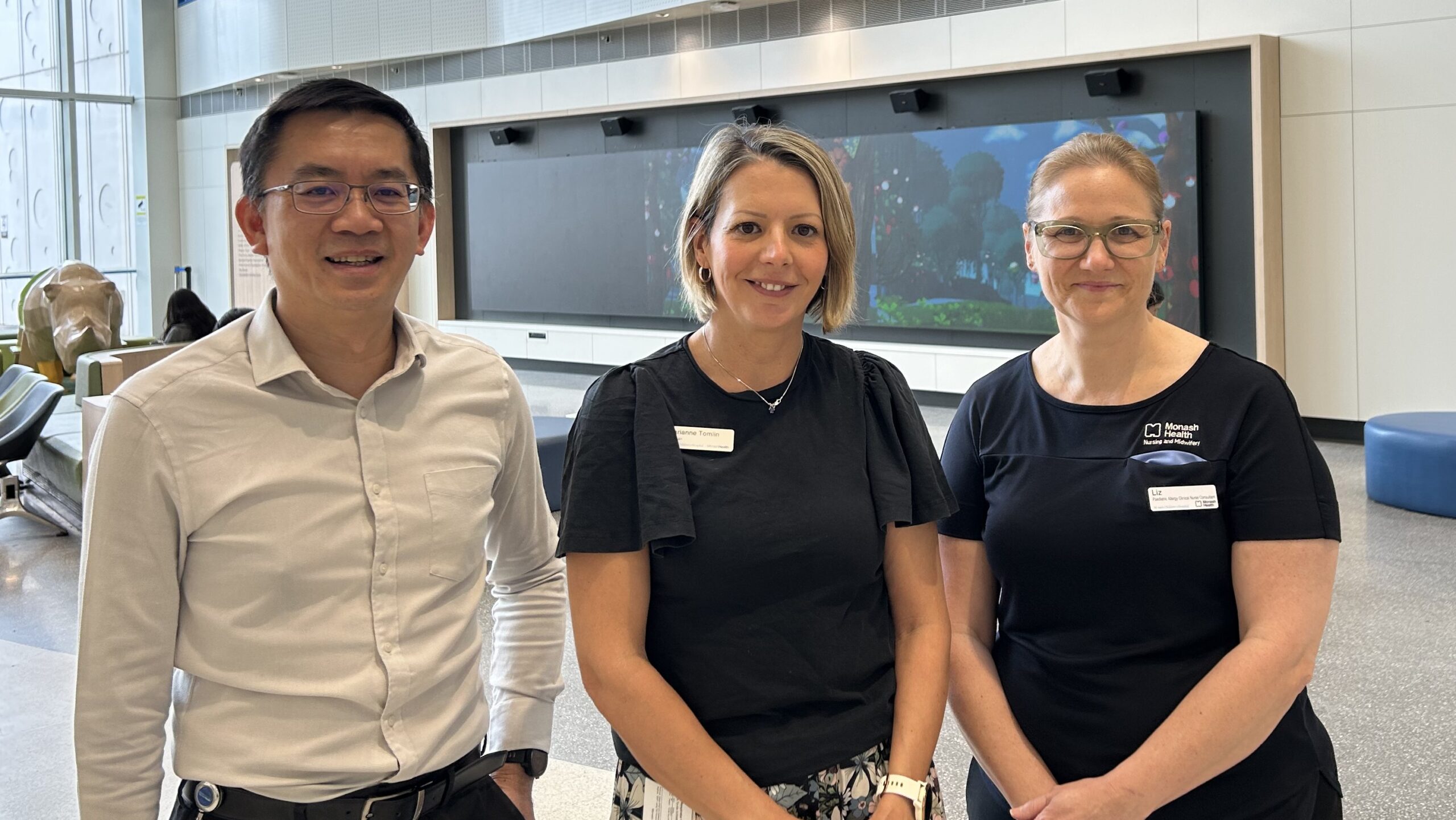
Caption: From left: Dr Paxton Loke, Marianne Tomlin, and Elizabeth Stevenson-Smith.
For parents and carers, knowing when to introduce common allergy-causing foods can be really confusing.
Since 2016, national infant feeding advice has recommended introducing common allergy-causing foods from 4 to 6 months of age. Unfortunately, confusion persists regarding this guidance among parents, carers and healthcare professionals.
Maternal and Child Health Nurses play a unique and vital role in educating families about the safe introduction of allergens during infancy.
Recognising this, the Monash Children’s Hospital Allergy Team – comprising Paediatric Allergy Dietitian Marianne Tomlin, Clinical Nurse Consultant in Allergy Elizabeth Stevenson-Smith, and Head of Paediatric Allergy/Paediatric Allergist Immunologist Dr Paxton Loke – developed an innovative online education program to strengthen the knowledge and confidence of Maternal and Child Health Nurses across regional and rural Victoria.
The pilot program was funded by the Federal Government as part of the National Allergy Council’s Shared Care for Allergy project, delivered through the Australasian Society of Clinical Immunology and Allergy (ASCIA). It reached more than 100 Maternal and Child Health Nurses across 13 councils.
The team said the initiative was created in response to recurring issues identified through the Monash Children’s Paediatric Allergy Clinic, where it was discovered that parents were often advised to delay allergen introduction, unnecessarily exclude foods, undergo inappropriate allergy testing in the community, or use ineffective eczema management strategies.
A parent survey conducted through participating Maternal and Child Health Nurses confirmed that similar practices were inconsistent with current national recommendations.
‘This program provides up-to-date knowledge, support, and resources for Maternal and Child Health Nurses,’ said Marianne.
‘It empowers them to confidently communicate accurate information to families. We know that with food allergies, early introduction of common allergens and effective eczema management are both crucial.’
Launched in February 2025, the program consisted of 6 live online lectures, each including dedicated Q&A sessions and ongoing email support throughout the year. To enhance accessibility for regional participants, an interactive online platform was also developed, allowing nurses to access lecture recordings and all supporting materials at their convenience — addressing challenges such as variable internet connectivity and scheduling constraints.
A pre- and post-program knowledge assessment demonstrated a statistically significant increase in participants’ understanding of food allergy, prevention, and eczema management.
‘Allergy is a constantly evolving field, and the advice continues to change,’ said Marianne. ‘We anticipate new national guidelines on infant feeding and allergen introduction to be released later this year.’
‘The response to the program has been incredible,’ added Elizabeth.
‘There’s been so much enthusiasm from Maternal and Child Health Nurses — even beyond the participating councils. We’ve already had requests from other regions, but to expand further, we’ll need additional support to reach more areas — ideally across all of Victoria and, eventually, interstate.’


